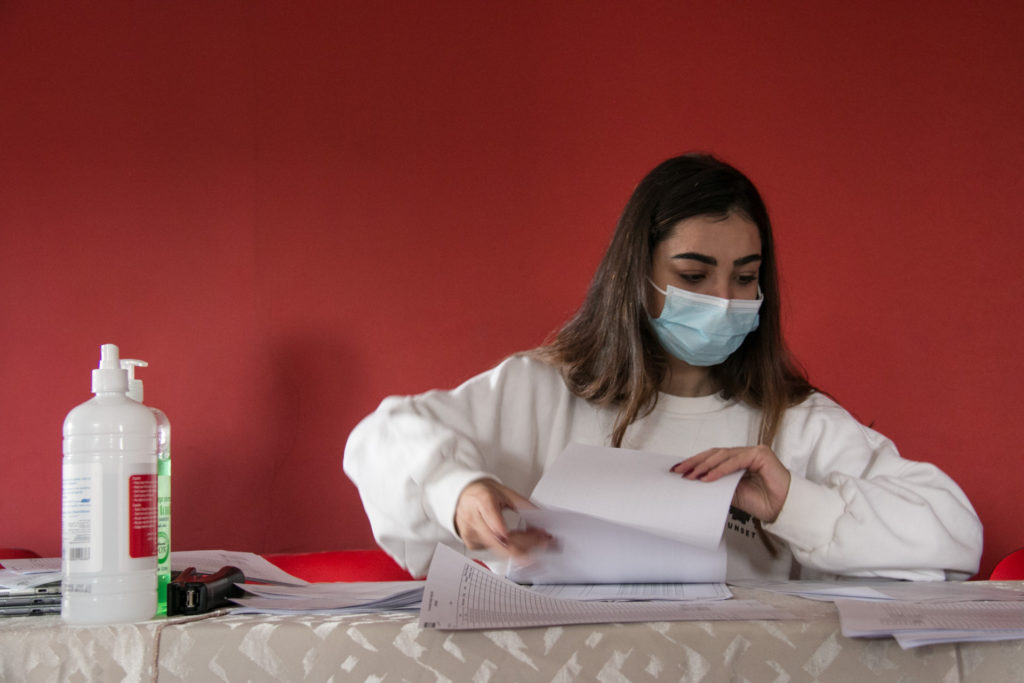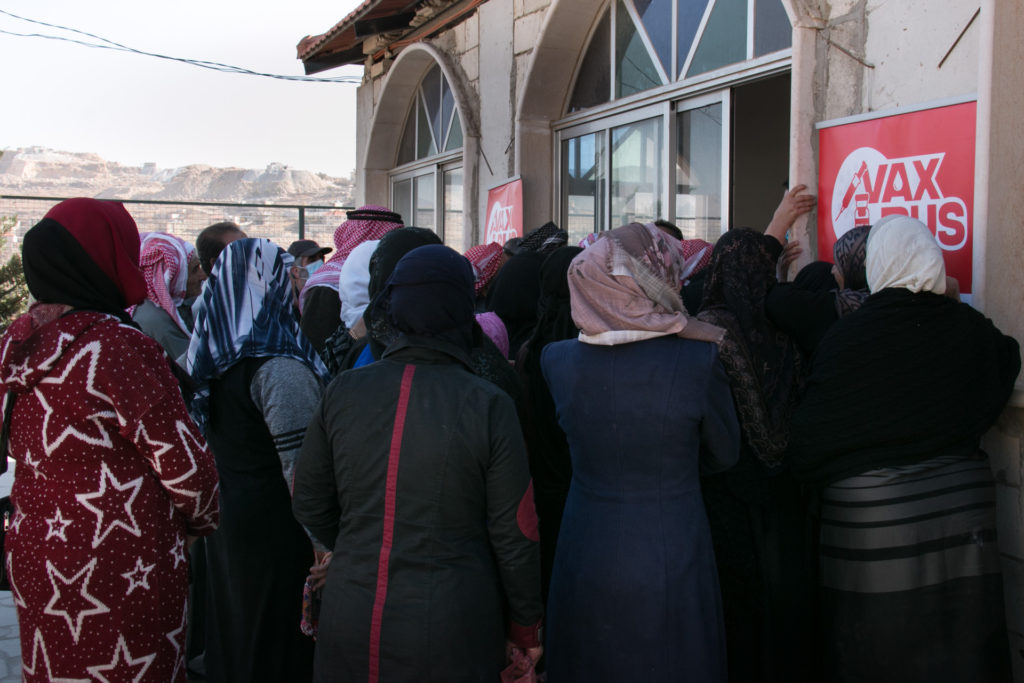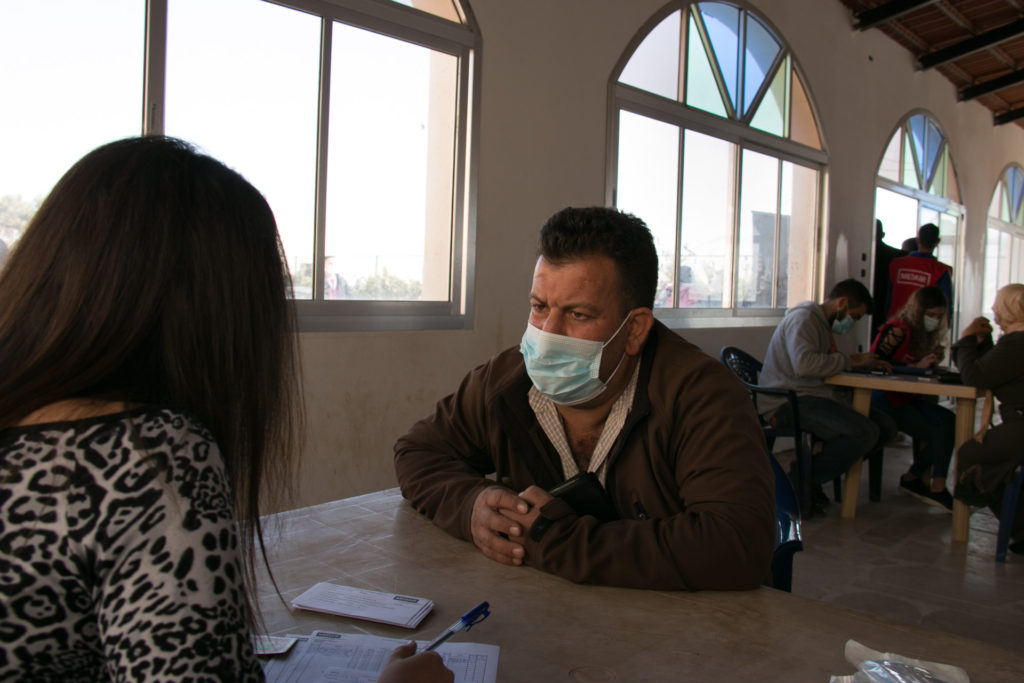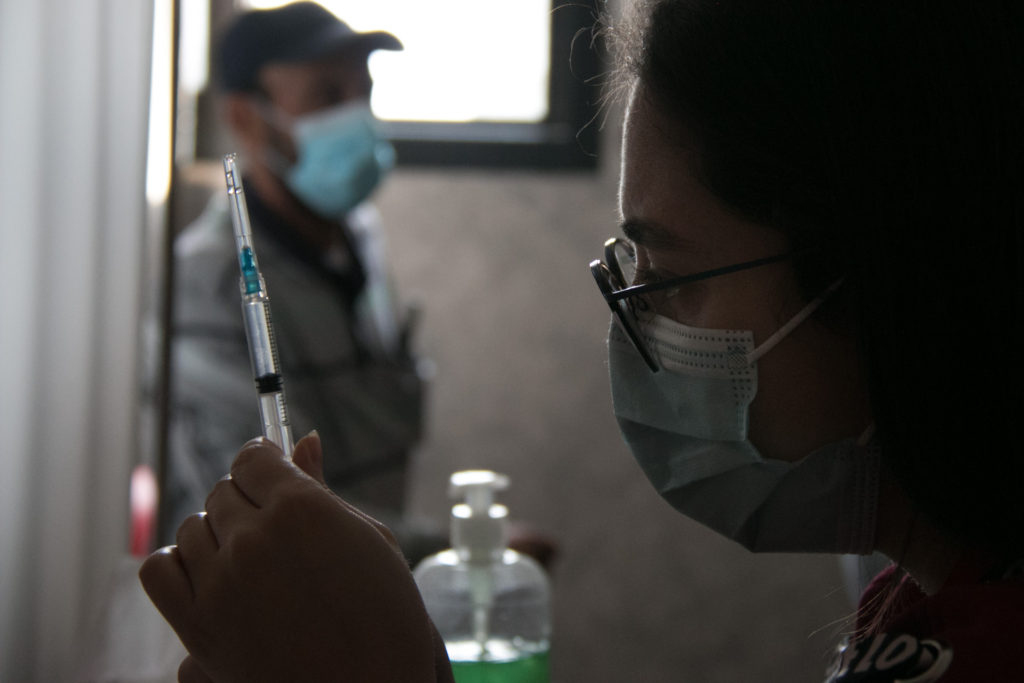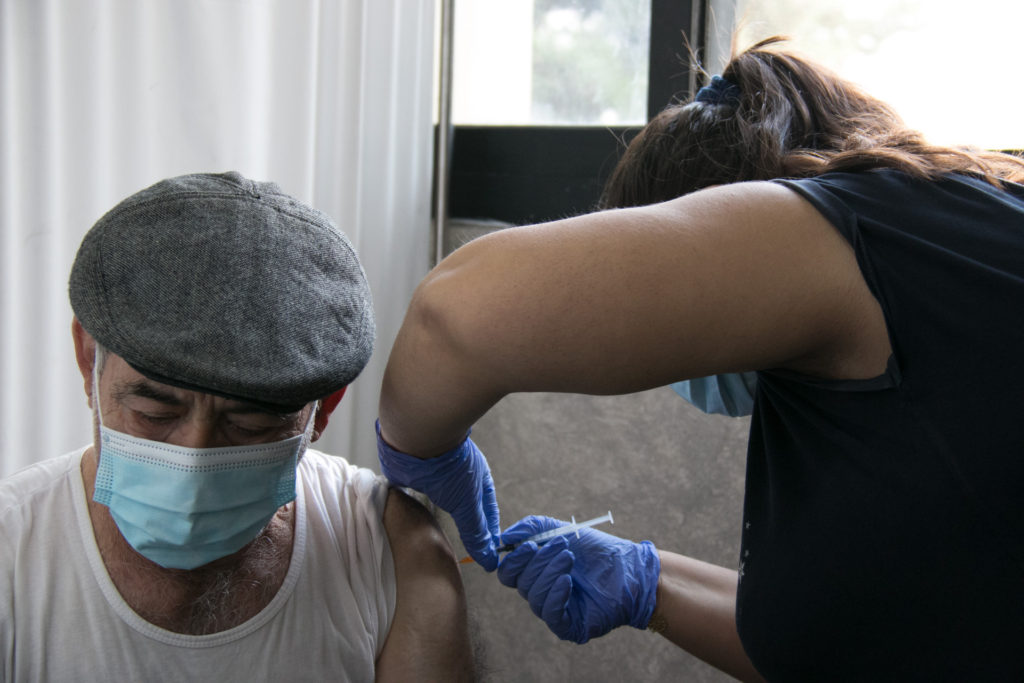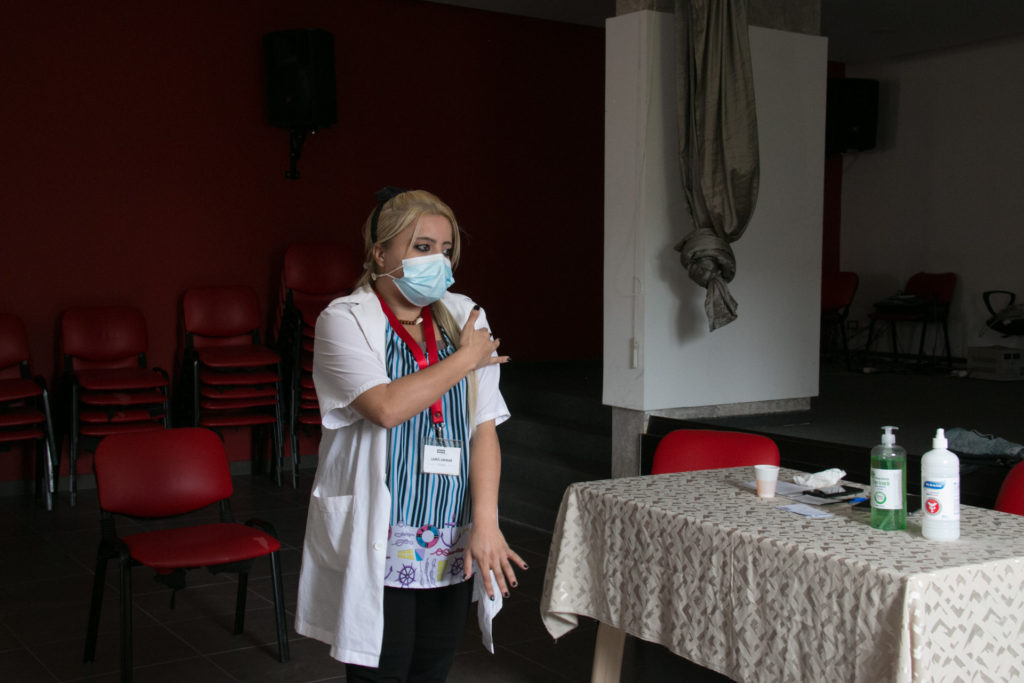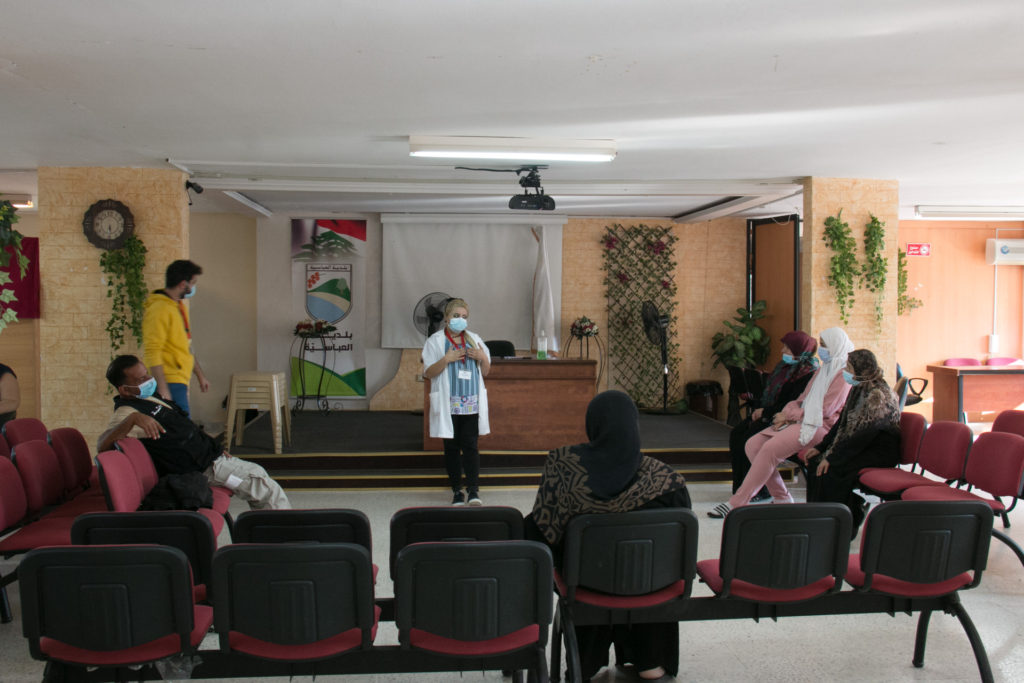A quick note before you read this article: This photo essay was produced between September 2021 and December 2021, as part of a fellowship at the Visual Constructive Journalism Lab, organized by the Deutsche Welle Akademie, focusing on solutions-oriented stories about Covid19.
The Covid situation might have evolved since. But the 2 main reasons why people were not getting vaccinated, access and mobility, are still very much present. And these reasons affect more than vaccination rates : they affect the overall health of people residing in Lebanon. After all, if people can’t access a health center because it’s too far/too expensive to get there, how can they hope to get treated for something as simple as a headache or as complicated as diabetes or cancer?
That’s why I decided to still publish the story : to show that with a minimum of coordination between the stakeholders of the health system, things can be improved.
Here’s hoping that this story sheds a light on the good work for some people, the limitations of this solution, and inspires others to do something good.
Despite Lebanon facing what’s been dubbed by the World Bank one of the worst recession since the 1850s, the country managed to secure enough Covid19 vaccines to vaccinate, mostly for free, around half of its population (this data is from November 2021). Yet less than 33 % are vaccinated. One of the main reasons for this ? Access and mobility. Or rather lack of access and mobility. So the Ministry of Health decided to reach unvaccinated people in their hometowns instead of having them reach the nearest healthcare center. They sent buses to vaccinate unvaccinated people.
Sobhiyeh Mohammad Khaled is 70 years old, she lives in a Syrian refugee camp in Ersal, near the Lebanese-Syrian border. When she heard that a Covid19 vaccination bus was coming to her hometown in October, she did not hesitate. “I walked here, it took me one hour, I can’t afford the LBP40,000 (USD $1.7 at the black market rate) fare cab.”
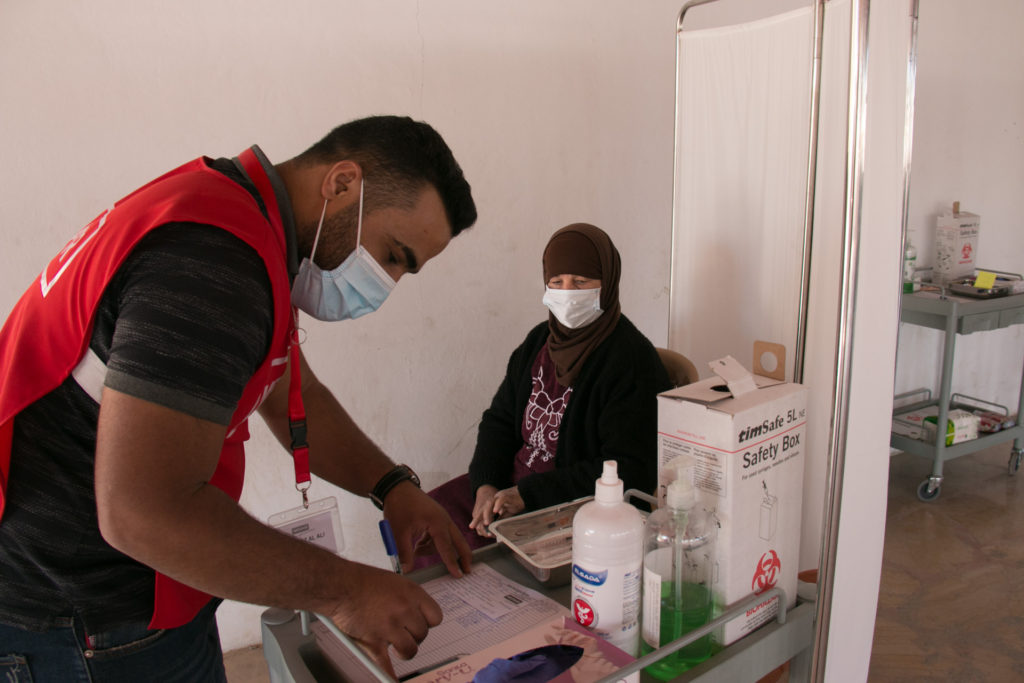
Like Khaled, “a lot of people living outside of urban centers have no access to a health center within 30 km of their house”, explains Esmee de Jong, head of office of the European Commission Humanitarian Aid office in Lebanon. And in the context of Lebanon facing what’s been dubbed by the World Bank one of the “most severe crises episodes globally since the mid- nineteenth century”, a lot of people struggle to put food on the table ( more than half of adults according to the latest Gallup Poll), let alone secure transportation to get vaccinated.
“One Syrian family told us that they would need LBP200,000 to go back and forth to the vaccination center. That’s 25 % of our monthly cash assistance program geared towards Syrian refugees”, says De Jong.
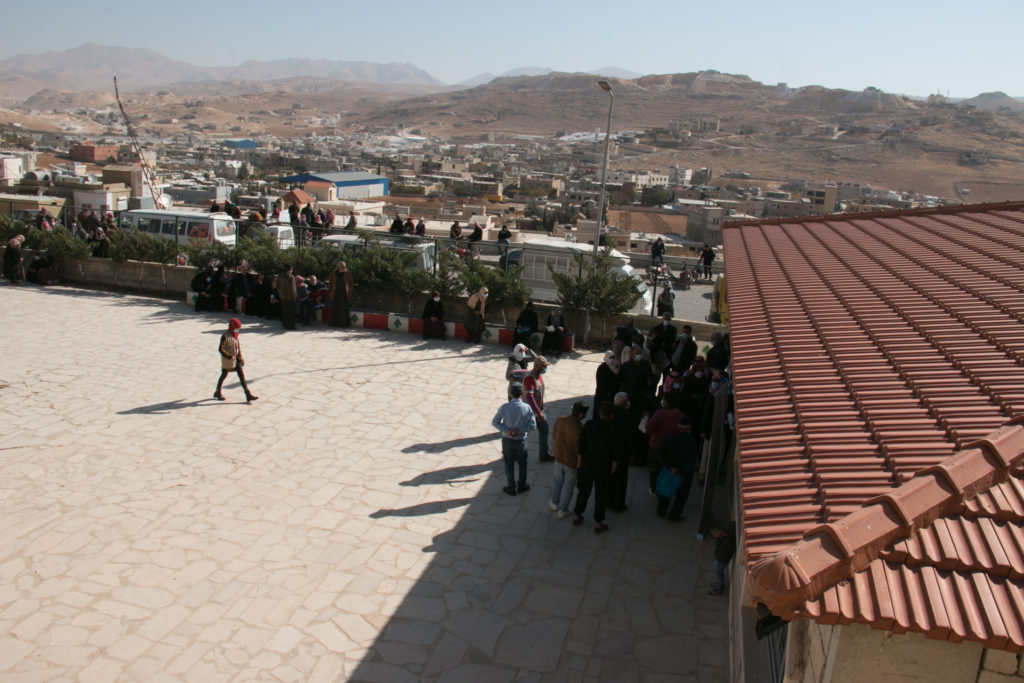
And for Lebanese and Syrians alike, transportation costs rocketed by 508 % year-on-year in October, which means that people are paying over six times more for transportation than they were a year before; knowing that Lebanon’s official minimum wage is worth less than $27 at the current market rate of LBP 24,500 per dollar.
“Accessibility and mobility have become the main themes for vaccination, apart from vaccine hesitancy”, adds de Jong.
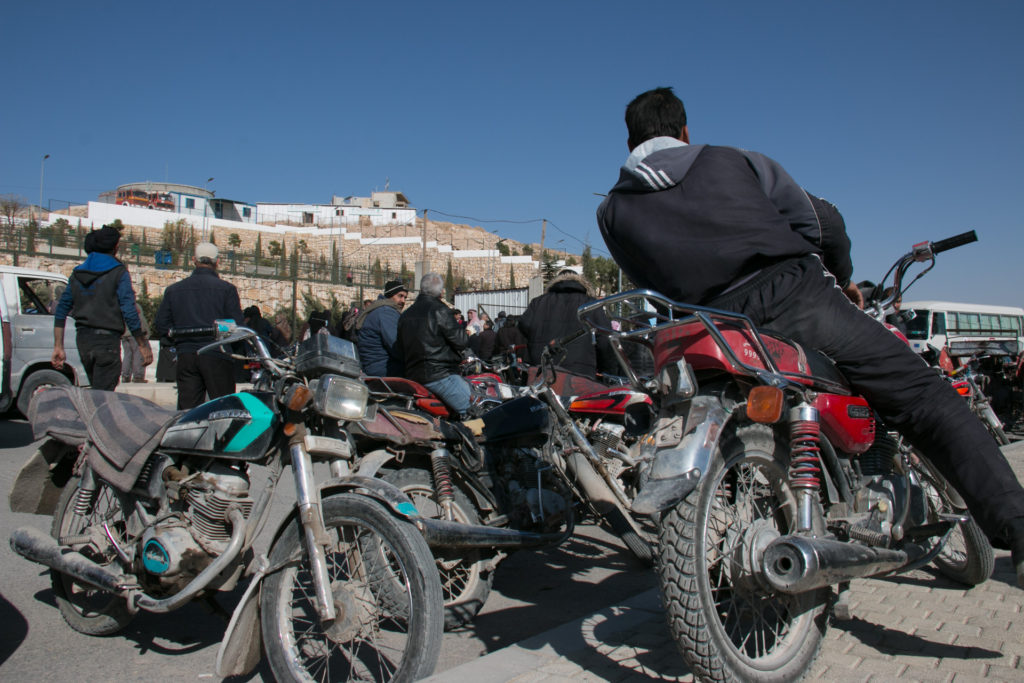
The vaccination data reflects this reality. In Lebanon, at end November 2021, roughly 33 % of the eligible population (12 + year old) is fully vaccinated. But only 10 % of the people residing in Akkar received their first dose, as opposed to 43% of the Beirutis.
And it’s not a problem of availability of the vaccine. Despite struggling to secure fuel, electricity and medicine, the Lebanese government and his private partners managed to secure at end November 2021 nearly 5 million doses of all types of vaccines, so roughly enough to vaccinate almost half of the eligible population (5.461 million people), Lebanese, foreigners and refugees alike.
Sending the vaccines to people
That led the Ministry of PubHealth (MoPH) to target its vaccination efforts to Akkar, Baalback, Hermel and the South of Lebanon, by sending “vax buses” to remote areas.
The MoPH partnered with different NGOS who are in charge of the organisation and the logistics of the buses : they provide the buses, the qualified workforce, the refrigeration system, they get the vaccines , and they coordinate with local authorities to set up vaccination centers in public buildings (municipalities, schools, gardens) on certain agreed dates.
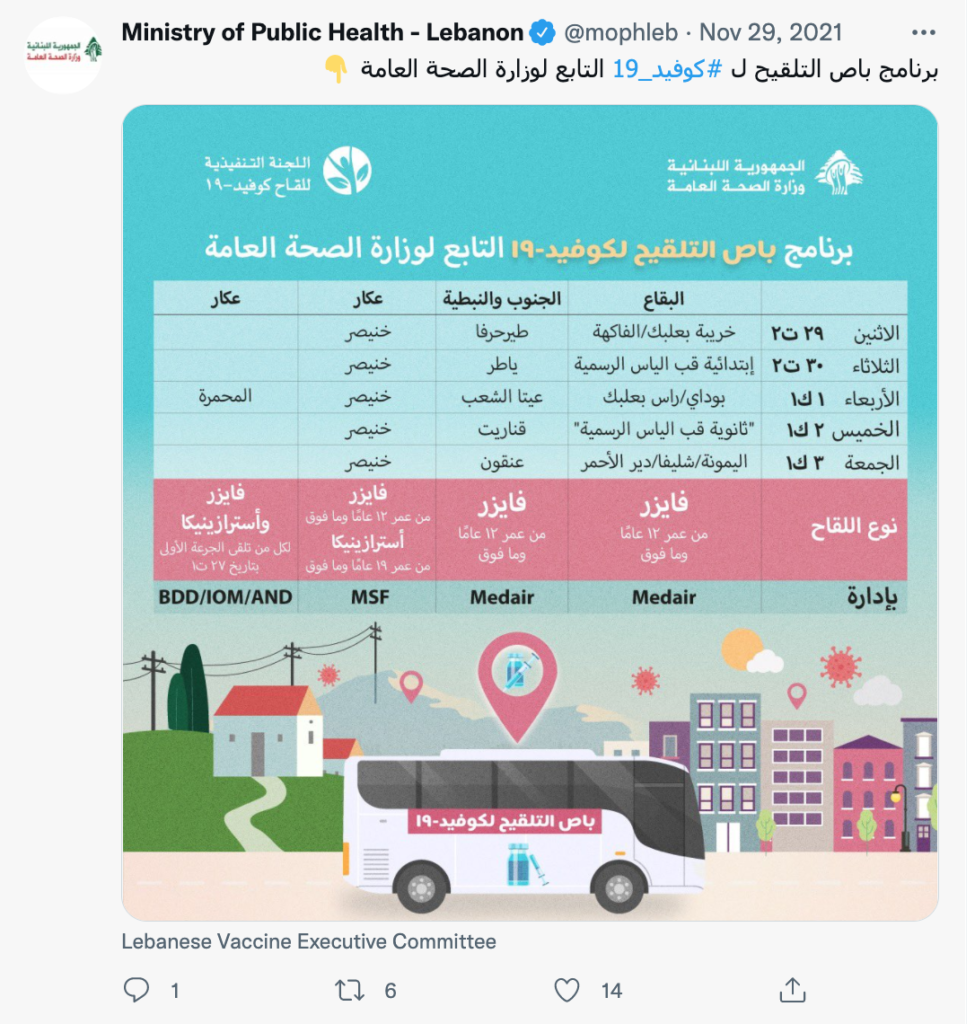
One of these organizations is Swiss NGO Medair, who, thanks to funds provided by Swiss Solidarity and by the EU humanitarian aid office, prepared 3 buses to be sent to the South of Lebanon and to the Bekaa. (The EU released €5.5 million during the summer of 2021 to strengthen the COVID-19 response in the country.)
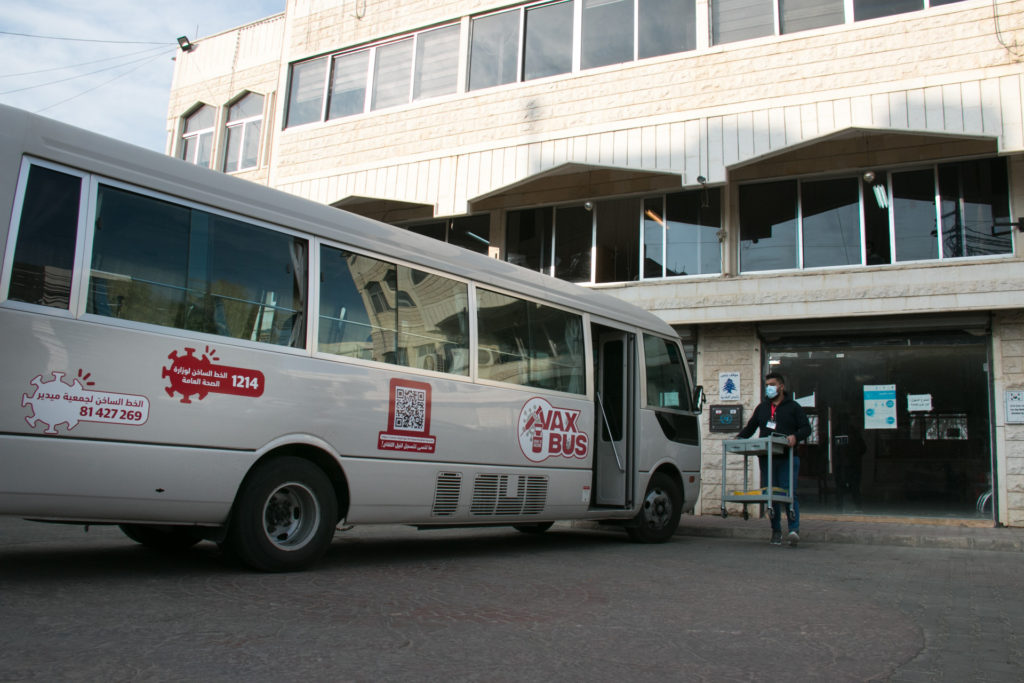
“Each bus has the capacity to vaccinate 200 people per day”, explains Hussein Harake, health program manager at Medair. “It transports a team of 7 people : 1 doctor, 2 nurses, 1 pharmacist, 2 pre vaccination assessors, and 1 information and workflow coordinator” .
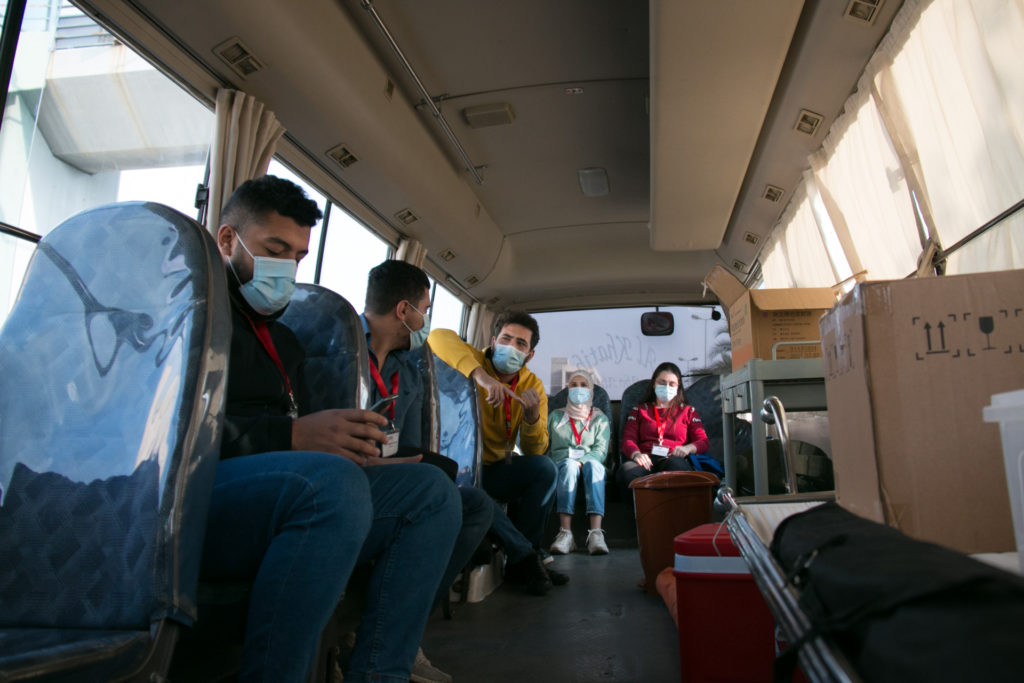
A vaccination process pretty well defined
The process is pretty well defined. Before the agreed date, Medair and other NGOs’ community volunteers are in charge of raising awareness among their communities about Covid19 vaccination, and let them know about the upcoming vax bus date and place. These volunteers are usually trusted members of the communities who are trained by the NGOs to deliver awareness on certain topics.
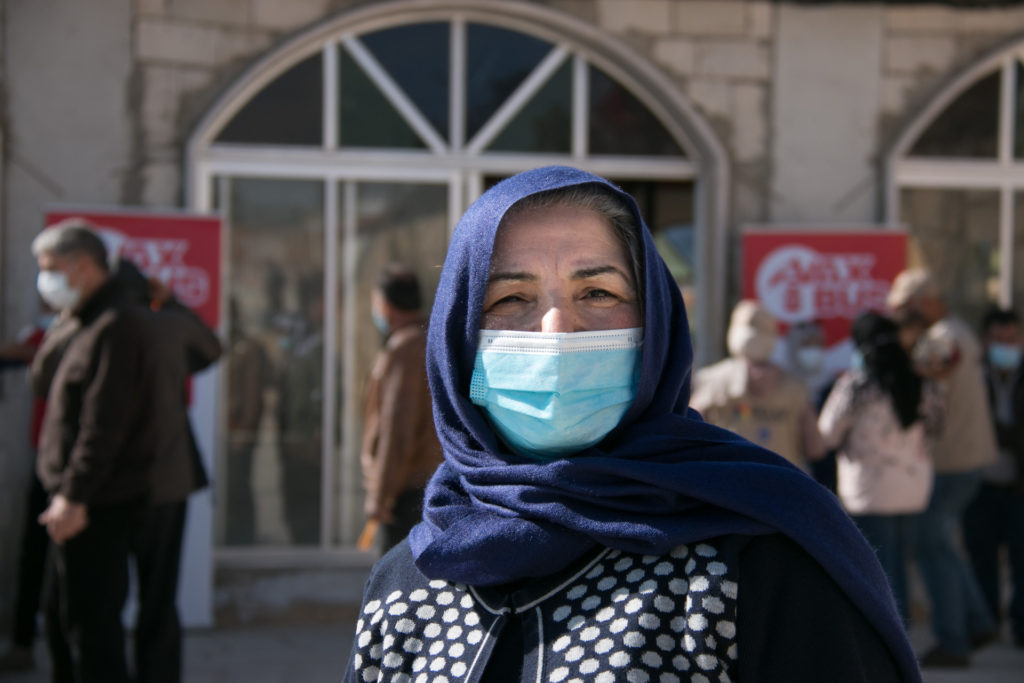
On the agreed date, the bus gets to its destination, and the team sets up the place to ease the workflow. Then they open the door to people willing to get vaccinated, they help them with registration, they vaccinate them and monitor them for 15-30 minutes before letting them leave.
One caveat to this process: people who have no form of ID whatsoever cannot be registered. They don’t have to be legal in the country (there are lots of refugees and migrants who don’t have official papers in Lebanon), but they need to have some form of identification.
Since Medair started running the vax bus program on October 11th in the Beqaa and October 21 in the South, and at end of November, they vaccinated 4,081 people. So roughly 107 per day.
“On average it’s not that high for now “, explains Hussein Haraty, “that’s why we are really keen to coordinate with all partners working on the outreach: UNHCR, Unicef, the MOPH. We don’t want to waste time and resources going to remote places without vaccinating more than 20 people per day.”
One big challenge: a better coordination between partners
This is what actually happened during the vaccination trip to Dar Qanun and Nahr and Abbassiyeh, in the South of Lebanon, where the team vaccinated only 30 people, as opposed to 400 people in Ersal.
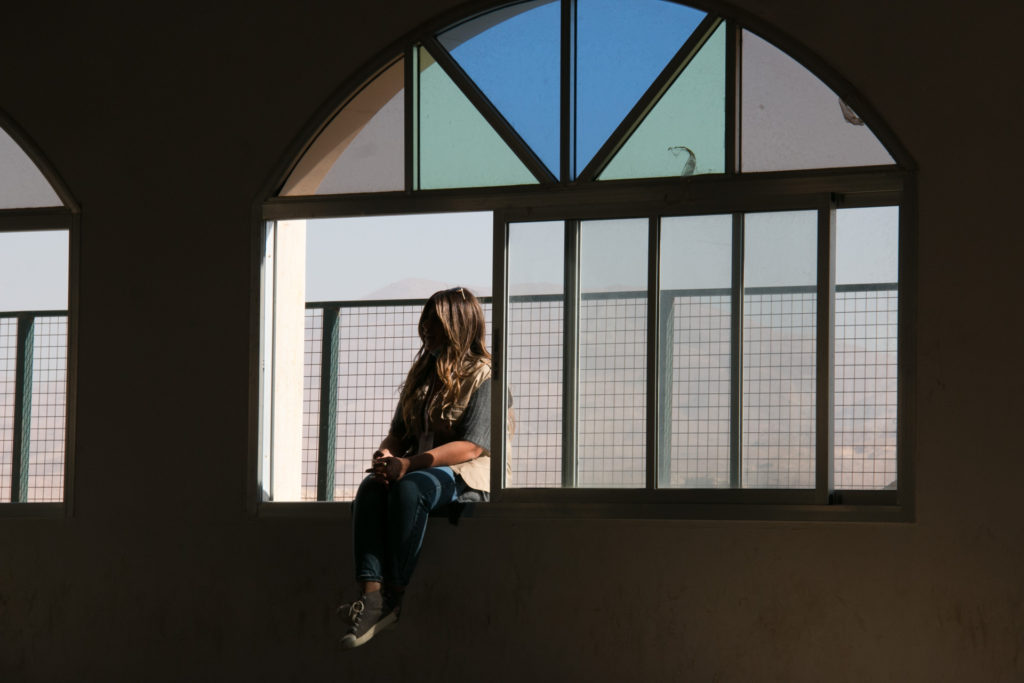
A communication problem is at the root of this low success rate. “Two municipalities were informed that Medair vax bus will be providing vaccination on the same day, whereas we we only supposed to go to one. So we decided to split the day in two and cover both municipalities”, explains Hussein Haraty.
But in Deir Qanun el Nahr, the turnout was low, even though the municipality sent Whatsapp messages to its citizens.
And in Abbassiyeh, the information provided to citizens was misleading: a lot of younger people came, but the vaccine (Pfizer) was only available for the 45+ year old, as per the recommendations of the MoPH .
“Since then, we put some procedures in place to increase the effectiveness of the communication with our outreach partners”, says Haraty.
And there is an urgency to vaccinate quickly. Currently, the rhythm of vaccination is pretty slow in the country (around 5 % per month). But with the arrival of winter and the opening of schools and universities, cases started drastically increasing again, after a pretty smooth spring and summer.
“Compared to the first lockdown in March 2020, the health system has deteriorated since. Today it is far less equipped to deal with a new wave of the pandemics”, explains Esmee de Jong. Indeed, the World Health Organization estimates that almost 40% of skilled medical doctors and nearly 30% of registered nurses had left Lebanon since the start of the crisis in October 2019.
“And those who are not yet vaccinated are the ones who are less likely to have access to health services if they get Covid”, says de Jong.
Prevention measures not necessarily adapted to the situation of the country
To mitigate the spread of the virus, the MoPH announced on Wednesday 1st of December that it would impose a night-time curfew for people who haven’t had at least one vaccine dose or a negative PCR (less than 48h old) from December 17 till January 9, from 7pm to 6am.
But citizens are skeptical. “My worry is that in Lebanon they never enforce anything”, says Mary Deeb, Associate Professor at the Gilbert and Berthe Chaghoury School of Medicine and Regional Counselor for the international epidemiological association. “Even the non-smoking law is not respected in restaurants.”
Furthermore, this policy would essentially discriminate against those who can’t access the vaccine, essentially excluding them from holiday celebrations and from night-time work.
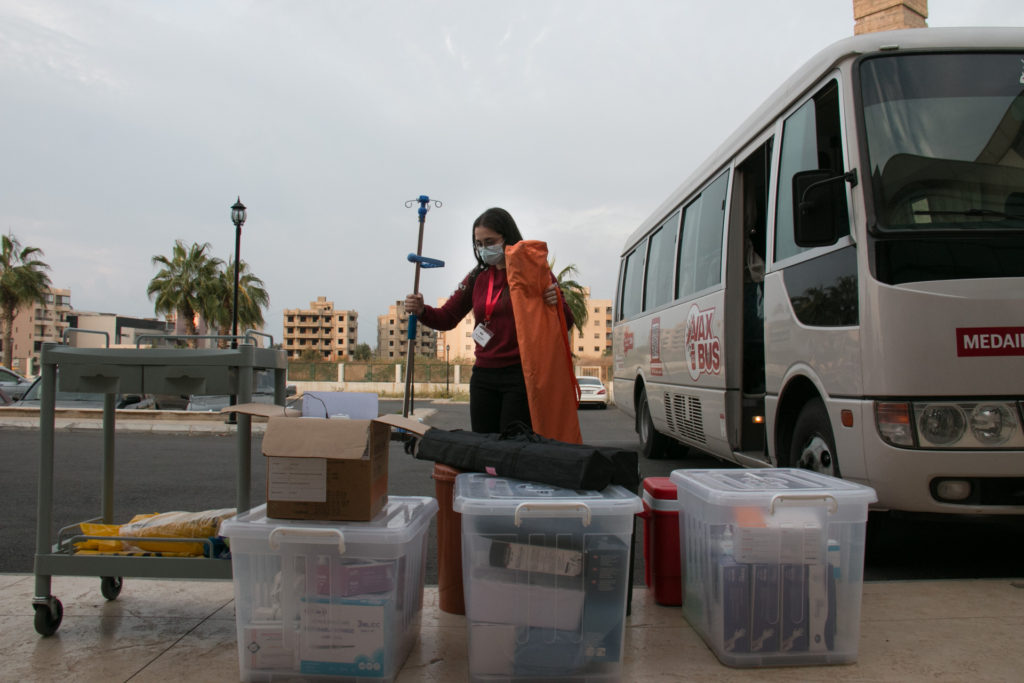
“It is a public health policy that makes sense in some countries, because unvaccinated people are more likely to spread the virus and get ill “, analyses Deeb. “But I am not sure it works in the context of Lebanon, where we need to be careful not to burden the economy anymore” . Indeed, the current Lebanese crisis pushed into poverty around 80 % of the population, according to the latest statistics from the UN.
“I would rather work on convincing people to get vaccinated”, suggests Deeb. “In some remote areas, people still don’t believe that there is Covid ! Maybe if there were more targeted campaigns on TV to convince people that Covid is real and that vaccines are effective, more people would rush to get vaccinated.”
Text and Pictures: MJ Daoud
Pictures Editing: Kevin Mertens
This project is part of the global initiative “Transparency and media freedom – Crisis resilience in the pandemic” by DW Akademie and the German Federal Ministry for Economic Cooperation and Development (BMZ).’

